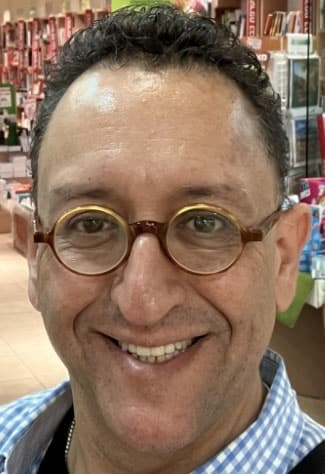How do we build a House of God? How do we achieve the spiritual mandate that God placed upon the community when asking of them to build the Mishkan, the dwelling place of God? Anybody who serves a community as its spiritual leader understands that the nature of my question has little to do with the architectural plans of the building, rather it addresses the religious and spiritual atmosphere we are challenged to create within the four walls that we call our “House of God.”
As a spiritual leader who for the past 15 years has served a community blessed with a splendid building, I have learned and continue to understand that edifices are meaningless as Houses of God unless we strive to create an atmosphere inside that befits God’s presence. As much as this issue challenges me within my own four walls, a recent long walk into another community taught me how — and how not to — build a House of God.
A few weeks ago on Shabbat afternoon, my two children and I walked from Westwood to my kids’ Jewish youth group (approximately an hour walk). Every two weeks my kids attend the group, which meets in a school, and it was my turn to walk them there. Upon arrival, we joined the youth group for Mincha. When we finished praying, the kids started their activity, and I walked to the synagogue across the street from the school. I walked into the first room, where the congregants were having Seudah Shelishit while listening to their rabbi speak. I passed on the food, but decided to listen to the rabbi.
He told the biblical story of the prophet Elijah meeting a man named Obadiah. When the two met for the first time, Obadiah knew who Elijah was, but Elijah did not know Obadiah, nor (according to the rabbi) did he even recognize Obadiah as being a member of the Jewish people.
“How is it that Elijah could not see that Obadiah was a Jew?” the rabbi asked.
After all, Obadiah was destined to become one of the prophets of Israel. The rabbi taught that according to the Talmud, Obadiah was a convert from the Edomite nation, and therefore, according to the rabbi, “the pigmentation of his skin was not that of a Jew,” thus explaining why Elijah couldn’t have possibly recognized Obadiah as being “one of his own.” The rabbi then proceeded to share a story of when he and some of his friends had rumbled on a New York City subway with a group of African Americans who claimed to be the “true Hebrews.” The rumble was intense, and the rabbi shared with us that “we all came away bruised, but of course the bruises showed up more clearly on my skin — the pigmentation of a Jew — than it did on theirs.”
Infuriated by this blatant expression of racism, I got up and walked out. I couldn’t believe that I had walked into what I thought was a House of God and walked out feeling angry and spiritually empty.
After Shabbat, my kids and I returned to the school, where a Saturday night parent-student study program took place. I sat with my kids to study Mishnah, and I looked around at a room filled with beautiful people, all engaged in Torah study. There were people from Yemen, Ethiopia, Libya, Morocco, Iran, India, Iraq, Poland, Russia, Hungary, Israel and America — all with their different pigmentations — gathered as Jews to study Torah with their kids. As opposed to the building across the street, I now felt that I was truly in a “Mishkan,” a dwelling place of God. I could feel God’s presence everywhere. I saw the radiance of God’s light shining on each and every face — black, white, brown or otherwise, because God’s light does not discriminate based on pigmentation.
Racism cannot dwell in the House of God, nor can racists build a true House of God. It is for this reason that when God chose an architect to build His own house, He called upon Bezalel, a man whose pigmentation the Torah does not describe, instead telling us that he was endowed with chochmat ha’lev — wisdom of the heart. It takes wisdom — and heart — to bring God into the building.
Daniel Bouskila is the rabbi at Sephardic Temple Tifereth Israel.























 More news and opinions than at a Shabbat dinner, right in your inbox.
More news and opinions than at a Shabbat dinner, right in your inbox.